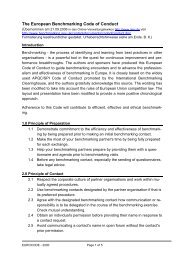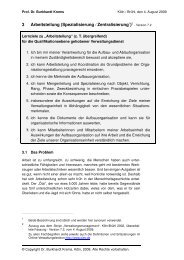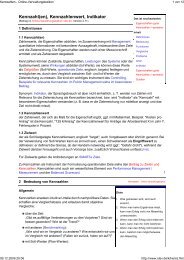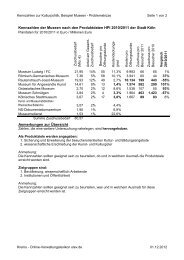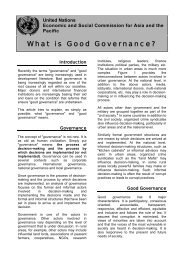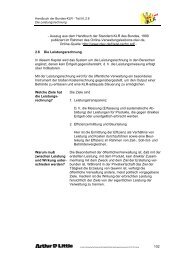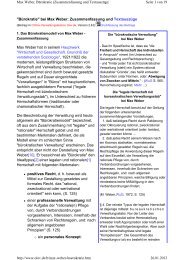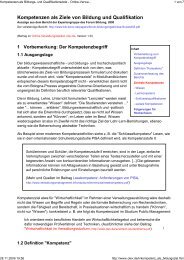Strategy Survival Guide
Strategy Survival Guide
Strategy Survival Guide
Create successful ePaper yourself
Turn your PDF publications into a flip-book with our unique Google optimized e-Paper software.
<strong>Strategy</strong> <strong>Survival</strong> <strong>Guide</strong> Version 2.1<br />
Prime Minister’s <strong>Strategy</strong> Unit<br />
home | strategy development | strategy skills | site index<br />
<strong>Strategy</strong> Skills > Managing People<br />
Recruiting a team<br />
> in practice<br />
A team with the right mix of skills and experience will bring insights and fresh thinking to difficult strategic<br />
issues. A roughly equal mix of experts and non-experts, insiders and outsiders works well in ensuring the<br />
right balance of focused analysis and imagination.<br />
Key issues to consider when recruiting a team include:<br />
• team size<br />
• team skills<br />
• the team leader<br />
• the recruitment process<br />
• stakeholder engagement.<br />
Team Size<br />
The size of the team is important – it should be large enough to encourage a mix of backgrounds and skills<br />
but small enough for each person to be a crucial part of the team. Relatively small teams established<br />
especially for the project tend to arrive at better solutions than single individuals or large legacy teams. In a<br />
large group, people may tend to go along with popular opinion rather than thinking for themselves. In<br />
general, the larger the group of people, the harder it is for the group to work well together. Smaller numbers<br />
also make team administrative tasks easier and make it easier to develop a common purpose with mutual<br />
goals and mutual accountability.<br />
The size and composition of the team is likely to vary over the length of the project, as different phases of<br />
work will require different levels of resources and different skills.<br />
Team Skills<br />
A multi-disciplinary team with the right mix of skills and experience will bring insights and fresh thinking to<br />
difficult strategic issues and will provide a secure foundation for successful policy analysis, design and<br />
implementation. Considering the appropriate split between civil servants and non-civil servants and between<br />
experts and non-experts will help to secure the right combination of knowledge and freshness. End dates of<br />
any secondments should be made as flexible as possible to allow for delays in publication or securing<br />
collective agreement to the project’s recommendations. Team leaders also need to be aware of and manage<br />
demands on team members who are not full-time on the project.<br />
Before beginning the recruitment process, a team leader may draw up job profiles to help identify the breadth<br />
of skills and experience needed in the new team which is likely to include:<br />
• specific domain knowledge or expertise in certain subject areas<br />
• general analytical and conceptual ability<br />
• specialist statistical and economics skills<br />
• decision-making skills and project management experience<br />
• interpersonal skills<br />
• creativity skills<br />
• delivery experience.<br />
<strong>Strategy</strong> <strong>Survival</strong> <strong>Guide</strong> – <strong>Strategy</strong> Skills<br />
Page 46



